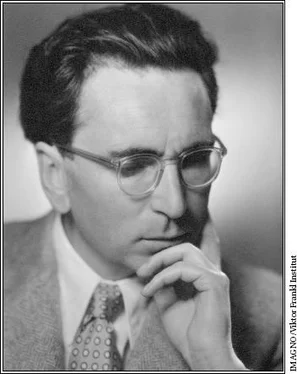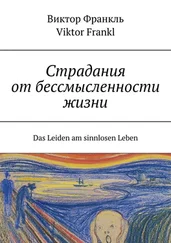All this came to my mind when I saw the photographs in the magazine. When I explained, my listeners understood why I did not find the photograph so terrible: the people shown on it might not have been so unhappy after all.
On my fourth day in the sick quarters I had just been detailed to the night shift when the chief doctor rushed in and asked me to volunteer for medical duties in another camp containing typhus patients. Against the urgent advice of my friends (and despite the fact that almost none of my colleagues offered their services), I decided to volunteer. I knew that in a working party I would die in a short time. But if I had to die there might at least be some sense in my death. I thought that it would doubtless be more to the purpose to try and help my comrades as a doctor than to vegetate or finally lose my life as the unproductive laborer that I was then.
For me this was simple mathematics, not sacrifice. But secretly, the warrant offcer from the sanitation squad had ordered that the two doctors who had volunteered for the typhus camp should be “taken care of” till they left. We looked so weak that he feared that he might have two additional corpses on his hands, rather than two doctors.
I mentioned earlier how everything that was not connected with the immediate task of keeping oneself and one’s closest friends alive lost its value. Everything was sacrificed to this end. A man’s character became involved to the point that he was caught in a mental turmoil which threatened all the values he held and threw them into doubt. Under the influence of a world which no longer recognized the value of human life and human dignity, which had robbed man of his will and had made him an object to be exterminated (having planned, however, to make full use of him first—to the last ounce of his physical resources)—under this influence the personal ego finally suffered a loss of values. If the man in the concentration camp did not struggle against this in a last effort to save his self-respect, he lost the feeling of being an individual, a being with a mind, with inner freedom and personal value. He thought of himself then as only a part of an enormous mass of people; his existence descended to the level of animal life. The men were herded—sometimes to one place then to another; sometimes driven together, then apart—like a flock of sheep without a thought or a will of their own. A small but dangerous pack watched them from all sides, well versed in methods of torture and sadism. They drove the herd incessantly, backwards and forwards, with shouts, kicks and blows. And we, the sheep, thought of two things only—how to evade the bad dogs and how to get a little food.
Just like sheep that crowd timidly into the center of a herd, each of us tried to get into the middle of our formations. That gave one a better chance of avoiding the blows of the guards who were marching on either side and to the front and rear of our column. The central position had the added advantage of affording protection against the bitter winds. It was, therefore, in an attempt to save one’s own skin that one literally tried to submerge into the crowd. This was done automatically in the formations. But at other times it was a very conscious effort on our part—in conformity with one of the camp’s most imperative laws of self-preservation: Do not be conspicuous. We tried at all times to avoid attracting the attention of the SS.
There were times, of course, when it was possible, and even necessary, to keep away from the crowd. It is well known that an enforced community life, in which attention is paid to everything one does at all times, may result in an irresistible urge to get away, at least for a short while. The prisoner craved to be alone with himself and his thoughts. He yearned for privacy and for solitude. After my transportation to a so-called “rest camp,” I had the rare fortune to find solitude for about five minutes at a time. Behind the earthen hut where I worked and in which were crowded about fifty delirious patients, there was a quiet spot in a corner of the double fence of barbed wire surrounding the camp. A tent had been improvised there with a few poles and branches of trees in order to shelter a half-dozen corpses (the daily death rate in the camp). There was also a shaft leading to the water pipes. I squatted on the wooden lid of this shaft whenever my services were not needed. I just sat and looked out at the green flowering slopes and the distant blue hills of the Bavarian landscape, framed by the meshes of barbed wire. I dreamed longingly, and my thoughts wandered north and northeast, in the direction of my home, but I could only see clouds.
The corpses near me, crawling with lice, did not bother me. Only the steps of passing guards could rouse me from my dreams; or perhaps it would be a call to the sick-bay or to collect a newly arrived supply of medicine for my hut—consisting of perhaps five or ten tablets of aspirin, to last for several days for fifty patients. I collected them and then did my rounds, feeling the patients’ pulses and giving half-tablets to the serious cases. But the desperately ill received no medicine. It would not have helped, and besides, it would have deprived those for whom there was still some hope. For light cases, I had nothing, except perhaps a word of encouragement. In this way I dragged myself from patient to patient, though I myself was weak and exhausted from a serious attack of typhus. Then I went back to my lonely place on the wood cover of the water shaft.
This shaft, incidentally, once saved the lives of three fellow prisoners. Shortly before liberation, mass transports were organized to go to Dachau, and these three prisoners wisely tried to avoid the trip. They climbed down the shaft and hid there from the guards. I calmly sat on the lid, looking innocent and playing a childish game of throwing pebbles at the barbed wire. On spotting me, the guard hesitated for a moment, but then passed on. Soon I could tell the three men below that the worst danger was over.
It is very diffcult for an outsider to grasp how very little value was placed on human life in camp. The camp inmate was hardened, but possibly became more conscious of this complete disregard of human existence when a convoy of sick men was arranged. The emaciated bodies of the sick were thrown on two-wheeled carts which were drawn by prisoners for many miles, often through snowstorms, to the next camp. If one of the sick men had died before the cart left, he was thrown on anyway—the list had to be correct! The list was the only thing that mattered. A man counted only because he had a prison number. One literally became a number: dead or alive—that was unimportant; the life of a “number” was completely irrelevant. What stood behind that number and that life mattered even less: the fate, the history, the name of the man. In the transport of sick patients that I, in my capacity as a doctor, had to accompany from one camp in Bavaria to another, there was a young prisoner whose brother was not on the list and therefore would have to be left behind. The young man begged so long that the camp warden decided to work an exchange, and the brother took the place of a man who, at the moment, preferred to stay behind. But the list had to be correct! That was easy. The brother just exchanged numbers with the other prisoner.
As I have mentioned before, we had no documents; everyone was lucky to own his body, which, after all, was still breathing. All else about us, i.e., the rags hanging from our gaunt skeletons, was only of interest if we were assigned to a transport of sick patients. The departing “Moslems” were examined with unabashed curiosity to see whether their coats or shoes were not better than one’s own. After all, their fates were sealed. But those who stayed behind in camp, who were still capable of some work, had to make use of every means to improve their chances of survival. They were not sentimental. The prisoners saw themselves completely dependent on the moods of the guards—playthings of fate—and this made them even less human than the circumstances warranted.
Читать дальше












